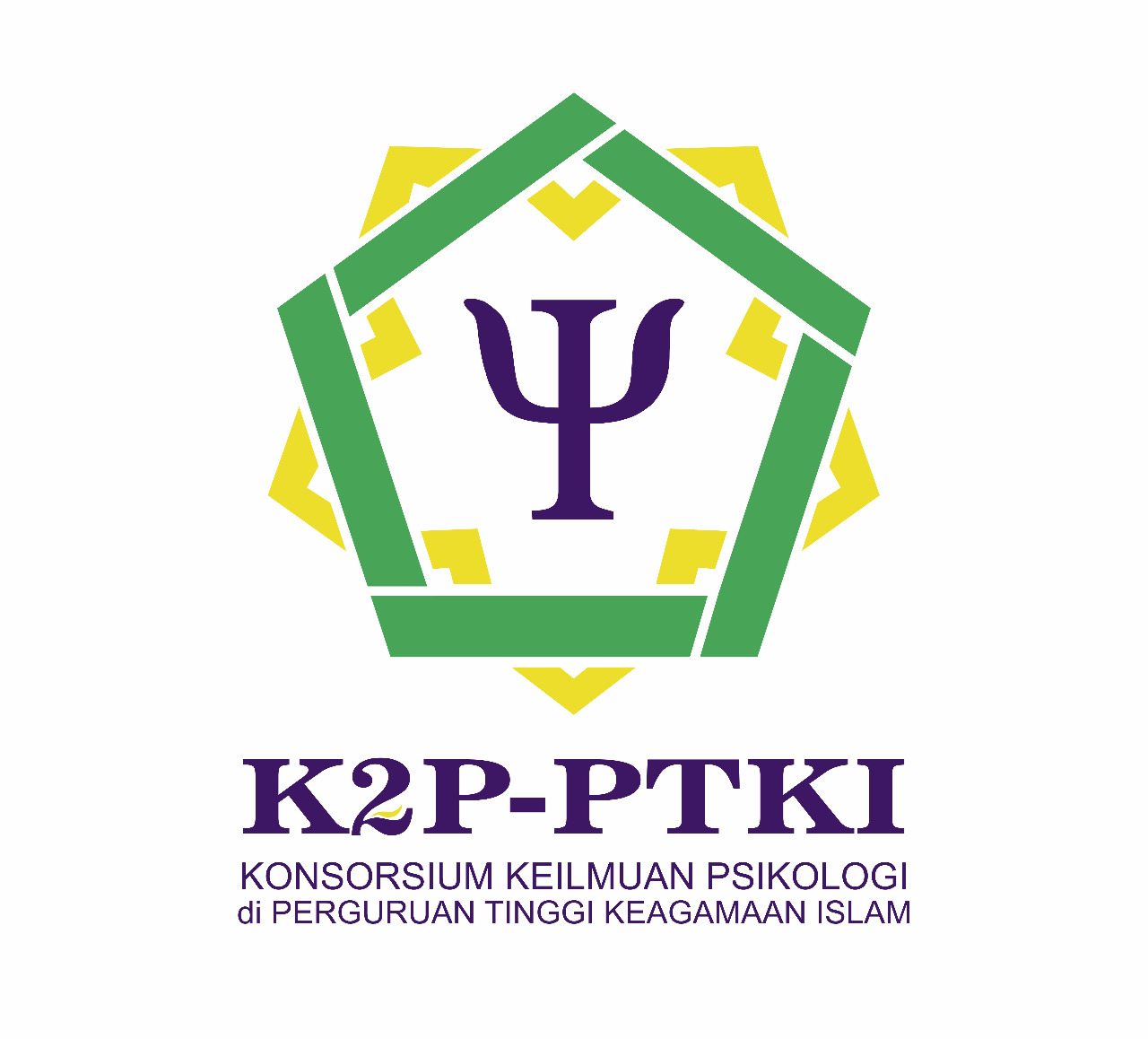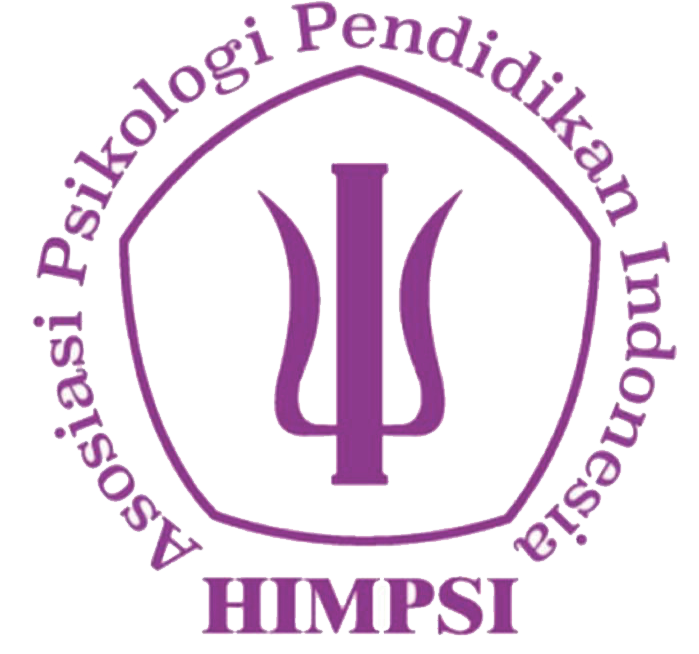Subjective Well-Being Among Teenager in Banda Aceh
Abstract
This study aims to determine the subjective well-being of adolescents in Banda Aceh. Adolescent well-being was measured by subjective well-being scales, which comprised with cognitive and affective aspects. A quantitative descriptive analysis approach was used in this study. The participants were 293 teenagers from various schools and universities that spread across Banda Aceh, both public and private. The data collection instruments used were the SWLS and SPANE scales. Results of this study indicate that, life satisfaction of adolescents in Banda Aceh majority was categorized in "quite satisfied" as much as 41.3%, followed by "satisfied" as much as 27.6%, and "very satisfied" as much as 12.3%, while the other 18.8% are categorized in “less satisfied” and “dissatisfied”. Further, the participants of this research experience positive emotions more than negative emotions, as indicated by SPANE scale that showed "very balanced" = 31.1%, "balanced" = 65.5%, "less balanced" = 3.4%. This research approved that adolescents in Banda Aceh tend to have more positive feelings than negative feelings. This study also illustrates a new perspective in revealing the condition of adolescents who tend to be good, which was previously revealed that adolescence tends to feel full of "storm and stress".
Keywords: Positive Emotions; Negative Emotions; Life Satisfaction; AdolescentsKeywords
Full Text:
PDFReferences
ActionForHappiness. (2020). World Happiness Report. Action For Happiness: New York, didownload dari https://www.dayofhappiness.net/report
Antaramian, S. P., Huebner, E. S., & Valois, R. F. (2008). Adolescent life satisfaction. Applied Psychology: An International Review, 57(1), 112–126. https://doi.org/10.1111/j.1464-0597.2008.00357.x.
Argyle, M. (2001). The psychology of happiness (2nd ed.). Routledge.
BBC. (2015). Papua paling kurang bahagia, lajang paling bahagia. Jakarta: BBC Indonesia, Retrived from http://www.bbc.com/indonesia/berita_indonesia/2015/02/150206_indonesia_indeks_kebahagiaan.
Boere, C. G. (2006) Personality theories Erik Erikson 1902-1994. Psycholgy Departement Shippensburg University, 1-17.
BPS Aceh. (2015). Indeks Kebahagiaan Aceh Tahun 2014_No. 11/02/Th.XVIII. Banda Aceh: Badan Resmi Statistik, Retrieved from http://aceh.bps.go.id/asem/brs_ind/brsInd-20150305165222.pdf.
BPS Jabar. (2015). Indeks Kebahagiaan Jawa Barat Tahun 2014_13/02/32/Th. XVII. Bandung: Berita Resmi Statistik, Retrieved from http://jabar.bps.go.id/new/website/brs_ind/brsInd-20150311122944.pdf.
BPS Provinsi Papua. (2015). Indeks Kebahagiaan Papua Tahun 2014, No. 11/ 02/ 94/ Th. I. Jaya Pura: Badan Resmi Statistik, Retrived from http://papua.bps.go.id/website/brs_ind/brsind-20150208094501.pdf.
Dewi, E. M. P. (2014). Konsep Kebahagiaan pada Remaja yang Tinggal di Jalanan, Panti Asuhan dan Pesantren. Intuisi: Jurnal Psikologi Ilmiah. 6 (1)
Diener, E. (1984). Subjective well-being. Psychological Bulletin, 95, 542-575.
Diener, E. (2009). Culture and Well-Being: The Collected Works of Ed Diener. Springer: New York. DOI 10.1007/978-90-481-2352-0
Diener, E., & Ryan, K. (2011). Subjective Well-being: A General Overview. South African Journal of Psychology. 39(4). pp. 391-406
Diener, E., & Seligman, M. E. P. (2004). Beyond money: Toward an economy of well-being. Psychological Science in the Public Interest, 5, 1-31.
Diener, E., Eid, M., Larsen, R. J. (2008). The Science of Subjective Well-being. The Guilford Press: New York London
Diener, E., Emmons, R. A., Larsen, R. J. & Griffin, S. (1985). The Satisfaction with Life Scale. Journal of Personality Assessment, 49, 71-75
Diener, E., Lucas, R. E., & Scollon, C. (2006). Beyond the hedonic treadmill: Revising the adaptation theory of well-being. American Psychologist, 61, 305-314.
Diener, E., Suh, E. M., Lucas, R. E., & Smith, H. L. (1999). Subjective well-being: Three decades of progress. Psychological Bulletin, 125, 276-302.
Diener, E., Wirtz, D., Tov, W., Kim-Prieto, C., Choi, D., Oishi, S., & Biswas-Diener, R. (2009). New measures of well-being: Flourishing and Positive and Negative Feelings. Assessing Well-Being: The Collected Works of Ed Diener. Social Indicators Research Series 39, DOI 10.1007/978-90-481-2354-4 12
Helliwel, J., Layard, R., & Sachs, J. (2016). World Happiness Report. USA: United Nation.
Helliwel, J., Layard, R., Sachs, J., & Neve. (2020). World Happiness Report. USA: United Nation. diunduh dari https://worldhappiness.report/ed/2020/cities-and-happiness-a-global-ranking-and-analysis/)
Herbyanti, D. (2009). Kebahagiaan (Happiness) pada Remaja di Daerah Abrasi. Indigenous. 11.
Iwasa. H., Kawaai. C., Gondo. Y., Inagaki. H., Suzuki. T. (2006). Subjective well-being as a predictor of all-cause mortality among middle-aged and elderly people living in an urban Japanese community: A seven-year prospective cohort study. Geriatr Gerontol Int. 6: 216–222
Oishi S, Diener E, Lucas RE, &Suh E. (1999a).Cross-cultural variations in predictors of life satisfaction:perspectivesfromneedsandval-ues. Personal. Soc. Psychol. Bull, 25, 980–90.
Park, N., & Huebner, E. S. (2005). A cross-cultural studyof the levels and correlates of life satisfaction amongadolescents. Journal of Cross-Cultural Psychology, 36,444–456.
Pratisti, W. R. (2016). Model Kesejahteraan Subjektif Remaja. Disertasi. Universitas Gajah Mada. 10/305954/SPS/00246
Raharja, B. N., & Indati, A. (2019). Kebijaksanaan dan kepuasan hidup pada remaja. Gadjah Mada Journal of Psychology, 4(2), DOI: 10.22146/gamajop.46354.
Rienneke, T. C., dan Setianingrum, M. E. (2018). Hubungan Antara Forgiveness dengan Kebahagiaan Pada Remaja yang Tingga Di Panti Asuhan. Persona: Jurnal Psikologi Indonesia. 7 (1). ISSN. 2301-5985 (Print), 2615-5168 (Online)
Sekaran, U. (2003). Research Methods for Business: A Skill-Building Approach (4th edition). New York: John Wiley & Sons
Snyder, C. R., and Lopez, S. J. 2007. Positive Psychology: The Scientific and Practical Explorations of Human Strengths. Thousand Oaks. London. New Delhi: Sage Publications
The Jakarta Post. (2014). How happy are Indonesians, really? Jakarta: http://www.thejakartapost.com/news/2014/04/17/how-happy-are-indonesians-really.html.
Veenhoven, R. (1984). Conditions of happiness. Dordrecht: The Riedel Publishing Company
Watson, D.. & Tellegen. A. (1985). Toward a consensual structure of mood. Psychological Bulletin. 98. 219-235.
Wenas, G. E., Opod, H., & Pali, C. (2015). Hubungan kebahagiaan dan status sosial ekonomi keluarga di keluraham artembaga II Kota Bitung. Jurnal eBiomedik (eBm), 3(1), 532-538
DOI: https://doi.org/10.18860/psikoislamika.v20i2.17770

This work is licensed under a Creative Commons Attribution-NonCommercial-ShareAlike 4.0 International License.


------------------------------------------------------------------------------------------

pSIKOISLAMIKA by http://ejournal.uin-malang.ac.id/index.php/psiko is licensed under a Creative Commons Attribution-NonCommercial-ShareAlike 4.0 International License.



.jpg)


.jpg)





